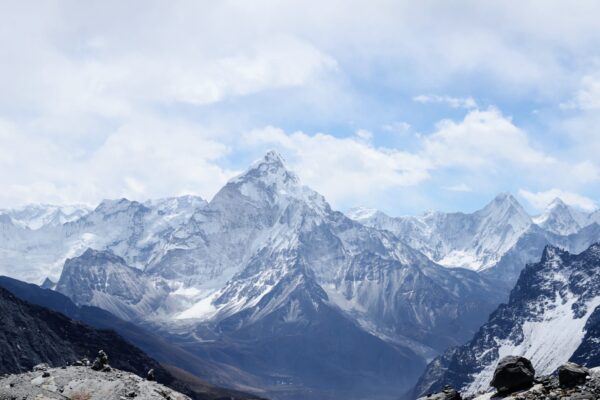The report by Intergovernmental Panel on Climate Change says that even if the world takes strong measures to combat climate change, global warming would continue at least until 2050
RH Staff
November 4
Warning that the extremes would get worse, the Intergovernmental Panel on Climate Change in its climate change report has said that even if the world takes strong measures to combat climate change, global warming would continue at least until 2050.
The report says that some of the changes caused by global warming are “unprecedented in thousands or even millions of years”.
“(The) extremes will get worse. The water cycle will intensify and be more variable. Many aspects of climate change will continue to increase as the earth becomes warmer. Heatwaves, heavy rainfall and droughts will continue to become more severe and more frequent. Rainfall over land, including monsoon rainfalls, will become more variable and intense: some areas will get drier, others will get wetter,” says the IPCC report. “Further warming will also amplify the thawing (defrosting) and melting of many frozen parts of the world, such as snow cover, glaciers, frozen ground and Arctic sea ice. For instance, it is estimated that the Arctic Ocean will be effectively free of sea ice at its lowest point in summer (September) at least once before 2050. Tropical cyclones will get stronger”.
The Intergovernmental Panel on Climate Change (IPCC) is a United Nations body that produces scientific reports on the current understanding of climate change. The Panel contains three main Working Groups look at the physical climate changes, the impacts these changes have on people and ecosystems, and how climate change can be reduced or stopped. The panel publishes climate change reports every 8 years.
The report says global warming has already caused widespread, rapid, and intensifying changes, some of which are unprecedented.
“The average temperature of the Earth’s surface between 2011 and 2020 was 1.1ºC (2°F) warmer than the average temperature in the late 19th century (before the industrial revolution) and warmer than at any time in the last 125,000 years,” says the report. “Each of the last four decades has been warmer than any previous decade since 1850. The world is warming faster than at any time in at least the last two thousand years. The levels of greenhouse gases in the air are continuing to rise and the Carbon dioxide concentrations are at their highest in at least the last 2 million years. Methane and nitrous oxide concentrations are at their highest in at least 800,000 years”.
While highlighting the impact of climate change on land and ice, the report says the widespread retreat of glaciers since 1950 has not been seen in at least 2000 years. “Rainfall over the land has increased since the 1950s. In the tropical regions, it is raining more during wet seasons and raining less during dry seasons. Many plant species and animal species have moved closer to the poles and to higher elevations, to follow the shifts in climate zones. For some Northern Hemisphere plant species, the growing season has become longer (up to 14 days longer since the 1950s) and, overall, the surface of the land has become greener since the early 1980s,” says the report. “Many of the frozen parts of the Earth are rapidly melting or thawing (defrosting). The area of the Arctic Ocean covered by sea ice in the summer is now 40% smaller than in the 1980s. It is the smallest it has been for at least one thousand years. Snow cover in the Northern Hemisphere has decreased since the late 1970s, and some of the ground areas usually frozen all year round have warmed and thawed (defrosted). The Greenland and Antarctic ice sheets are shrinking, as are the vast majority of glaciers worldwide, adding huge quantities of water to the oceans”.
Saying that 90% of the extra heat associated with global warming has been taken up by the ocean, the report says that the oceans are now warming faster than at any time in at least 11,000 years. “Sea level has risen globally by about 20 centimeters (approximately 8 inches) since 1900. It is rising faster than at any point in at least 3000 years, and this speed is accelerating,” reveals the scientific report. “By absorbing carbon dioxide from the atmosphere, the ocean is becoming more acidic. The surface water of the ocean is now unusually acidic compared with the last 2 million years”.
The report says that global warming will continue until at least about 2050 before temperatures can stabilize.
“Climate models show that, even if we strongly reduce greenhouse gas emissions starting now, warming won’t be halted until at least the 2050s,” it says. “Strong reductions in greenhouse gases starting now would slow and reduce this amount of warming. After the 2050s, climate models show very different levels of warming, depending on the actions we take in the near future. For example, if we strongly and rapidly reduce carbon dioxide emissions starting now and throughout the 21st century, warming would be halted by around the middle of the century, reaching around 1.5°C (2.7°F) or 2°C (3.6°F) by the end of the century in these scenarios. On the other hand, if emissions remain the same or increase, temperatures will continue to rise. In climate models that look at very high levels of greenhouse gas emissions, temperatures reach around 4.5°C (8°F) by the end of the century”.




